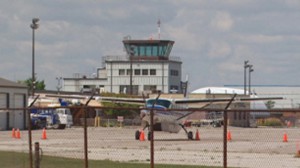Height of stigma is an audio play on the stigma that the very sound of Arabic heard from an Arab’s mouth is earth shattering once spoken in the corridors of an airport or on a plane. Because the piece is in a foreign language I want to see what I can evoke from the audience. However, That’s not to say that if you understand Arabic, that the piece is still not up for interpretation.
I used my uncle’s recollection of a dream that he has had of flying because he has a severe fear of heights. In his dream he recited verses from the Quran to pray for a safe and successful arrival and tried to convince himself that it was just a dream. During the end of the piece, I recite a short contemplation on whether he thought he was going to die or not on the flight because he was that petrified of flying. For the audience members who do speak Arabic, this is where their interpretation of the piece can be skewed into thinking it is about terrorism because the very last line said before the piece fades out is “La ilaha ill lalah Mohammdur Resoor Illah”. Which is a common prayer said to be recited at the time of death when spirits came to judge your soul on whether you were allowed entrance to heaven or hell in the Muslim faith. If your soul was pure then it would utter the words and grant your passage to heaven but if the soul was impure and led a life of wrong doings, the soul as an entity of its own, absent the mind, would not know the saying no matter how much the person rehearsed it in his or her lifetime. Now on the flip side, the saying is also a common prayer that a “martyr” or suicide bomber would utter before committing suicide for his or her cause, preemptively assuming that his or her act of martyrdom would permit them to Heaven.
This idea came from studying media for so long and is based loosely, actually, on the conspiracy theory that westerners don’t particularly know what they are hearing when they see or hear a martyr, insurgent or militant on television but the media has twisted their mind such that the very sight of turban or burka is an omen of death. There is a point in the piece where an imam recites a passage from the Quran known as sūrat l-ṣāfāt (Chapter 37, Verse 102). The English translation is as follows:
“And, when he (his son) was old enough to walk with him, he said: “O my son! I have seen in a dream that I am slaughtering you (offering you in sacrifice to Allah). So look what you think!” He said: “O my father! Do that which you are commanded, Insha’ Allah (if Allah wills), you shall find me of As-Sabirun (the patient).”
This quote from the Quran was something that my uncle, a pious man, proclaimed he was listening to on his IPod while he was boarding his flight. The story to this day still gives me a shutter, though; my uncle was always one to over exaggerate.
For my piece I used a series of reverses in the oral pronunciations of Arabic to simulate longer prayers because the sound of the imam and the prayers spoken or almost uncanny to spoken Arabic. All of my recordings of the terminal were done on sight between Windsor International Airport and the Detroit Metropolitan Airport. This was definitely the most trying portion of the project because large passenger planes almost never take off from Windsor International Airport, so I had to venture across the border to adequately capture the sound of a Boeing 737 taking off. The process in and of itself nearly scared me half to death because I basically stood at the top of the Detroit Metropolitan Airport parking lot to achieve the perfect capture. Standing at the top of this building, watching planes go by, with a full beard on, and a laptop in my hand waiting for TSA to come throw me to the ground is not the way to spend a Saturday night but I am so happy I did because capturing a dinky Cessna taking off or landing would have done absolutely nothing for my piece. Overall, I thoroughly enjoyed this project and would do it over again in a heartbeat and am so excited to see how the piece is received. Recording of the imam and subsequent passage of the Quran were acquired from: http://corpus.quran.com/translation.jsp?chapter=37&verse=102

